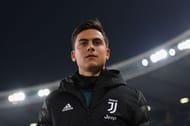
It is perplexing to even think that just two weeks ago, we witnessed a Champions League classic at a jam-packed Anfield as Diego Simeone’s determined and dogged Atletico Madrid toppled the European kingpins and blew the world’s most prestigious club competition wide open.
Far away in the French capital, however, proceedings were a lot quieter as a Neymar-inspired Paris Saint-Germain lifted their Champions League curse to overturn the 2-1 deficit against a high-voltage Borussia Dortmund team inside a rather-deafened Parc des Princes.
Whilst games behind-closed-door stadiums are obviously not the most exhilarating to watch, not many would argue against the fact that consuming football in any form or state is still more appetising than a three-course meal.
The world-shaking coronavirus pandemic, however, has put a consequential halt on the footballing feast which has seen domestic leagues and cups being suspended and international and continental competitions being postponed with an indefinite date of resumption.
Football fans around the world have been frustrated by this untimely stoppage as the season was entering its final and most exciting phase. Liverpool’s fairytale campaign was about to meet its happy ending with a first Premier League title in a torturous 30-year span.
Real Madrid and Barcelona’s inconsistent seasons forced them to lock horns in a gripping La Liga title showdown whilst Bayern Munich’s Bundesliga monopoly was under severe threat with Borussia Dortmund and RB Leipzig smelling Bavarian blood behind.
Inter Milan and Lazio made the Juventus-dominated Serie A a thrilling three-horse race whilst Paris Saint-Germain were ready to extend their Ligue 1 supremacy.
The Champions League saw Manchester City finally arrive this season as Pep Guardiola’s army conquered 13-time holders Real Madrid in an epic Bernabeu battle. Manchester United and Arsenal’s new-found resurgence was also gathering heat as was Atalanta’s unimaginable European run.
Many would feel that the premature footballing break has given the players much-needed respite following what has been another strenuous campaign. But how will no football for the foreseeable future impact them?
What about the mental, physical and economic toll on fans, club’s staff and part-time workers? How are lower division sides and grass-root level clubs coping with the depleted revenue? In what could be a seismic shift in world football, the coronavirus pandemic could change the face of the beautiful game forever.
It would not be an understatement to say that football is not only an obsession but a way of life and its unfortunate suspension has left a significant void in the daily routines of many of its ardent followers.
The sport almost has this paralysing effect on people because of its spell-binding action, over-the-top drama and stimulating nature. Many of us struggle without football as it puts us in a completely different zone altogether, a place where we can really express ourselves.
But reality says that the most-watched game in the world is on a complete standstill and its knock-off effect on the eco-system of the sport could be calamitous.

This unprecedented health crisis will have a lasting impact on both ends of the footballing spectrum, with the lower-division organisations being pushed towards the edge of bankruptcy and the elite clubs finding it difficult to keep hold of their marquee players, managers and behind-the-scenes workers.
The economical downfall will consequently disrupt future transfer operations, TV rights deals, sponsorships, peripheral businesses, investors and benefactors of the game, all of which will have to undergo a complete overhaul.
Thousands of clubs have come together to build what we today call a universal footballing community which feeds not only tens and thousands of players, agents and coaches but also the groundsmen, background staff, restaurant waiters, local shop-keepers and even the bar-owners near stadiums.
An obvious decline regarding subscriptions, viewership and advertisers could not only see TV broadcasting rights being renegotiated but also put a sudden stop on the ever-increasing transfer inflation.
The coronavirus, which has already crippled global economic markets, could hence spur a transformational restructuring of the game.
Perhaps, all this could be avoided if the footballing season could resume by late spring or early summer but that prospect seems extremely bleak right now.
New reports are bundling in each day highlighting how a rescheduled calendar could look if the domestic leagues are kickstarted in May or June, with Gary Neville even joking about a potential nine-day footballing bonanza to finish the Premier League.
Debate is still rife whether the current campaign should extend into the next or be completely voided, a prospect which has obviously divided fans and pundits around the world.
But think about Liverpool, a historically colossal club who were on the brink of domestic glory after three agonising decades, and the psychological ramifications on their players, fans and well-wishers if the season is called off.
The highly-anticipated European Championships, the Copa America and the Tokyo Olympics have all been pushed back a year, creating space for the domestic competitions to meet their climaxes.
If the next season does begin later this year, then there is absolutely no way that it could culminate by the following summer. Reports have suggested that this could be curbed by the scrapping off of domestic trophies like the Carabao and the FA Cup.
Eliminating these smaller-scale tournaments will not directly affect the top dogs but could have significant consequences for the lower-league clubs who rely on them for added revenue.
The drying-up of match-day income and the financial instability of the owners of these minuscule clubs have already created reverberations at the bottom-level of the footballing food chain and another such decision could only augment the downward spiral.
If there is a pre-set notion that bigger clubs are immune to the virus because of their humongous wealth, then that is just plain negligence.
Smaller clubs going out of business could have a domino effect on the top-flights with many of the high-end clubs traditionally relying on the lower divisions and non-league networks to produce and hone talented players.
Manchester United legend Wayne Rooney recently shed light on the fact that the Premier League, without its lower-league underpinnings, could well and truly move towards becoming like the Major League Soccer which is a one-league structure with virtually nothing underneath it.

Then there are questions raised regarding Paulo Dybala, Mikel Arteta, Paulo Maldini and Callum Hudson-Odoi, who constitute just a tiny, high-profile population of the ocean of footballing personalities directly affected by the deadly virus, and how they will return to normalcy.
The mental bearing and physical demands of the disease will no doubt hamper their health, fitness and soundness going forward.
Another discussion has been regarding the players whose contracts run down on June 30th and whether national footballing associations across Europe should add provisions or introduce contingency plans so that brief extensions can take place.
This will again have a striking impact on the smaller clubs who are littered with loanees on short-term contracts. If and when the season resumes, match attendances will take an obvious hit due to the repercussions of the virus, restricted intra and inter-country travel and lack of finances.
Pundits and purists of the game are crying out for elite clubs to fight the coronavirus by coming together and donating to the health sector, capping wages, helping out their lower-league counterparts and fulfilling their social responsibilities.
Football will be back and hopefully stronger than ever, but it is more important for us to stay safe, informed, aware, positive and responsible during these testing times. The leaders, lawmakers and overseers of the game are doing everything in their capacity to once again bring our beloved game to the stadiums, on television and laptop screens and most importantly into our lives.
In an unforeseen time like this, the footballing family can all but come together on a united front. As Bill Shankly famously said, “Some people believe football is a matter of life and death. I am very disappointed with that attitude. I can assure you it is much, much more serious than that.”
